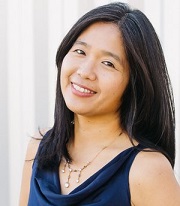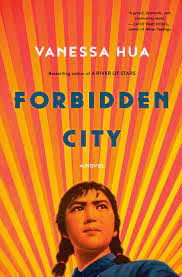When readers first meet Mei, she is a 15-year old, self-absorbed teenager with dreams of a life better than the one she’s always known. After leaving for Beijing and joining the dance troupe, the complexities of her character emerge and her actions can be seen as either heroic or villainous. As Mei spends more time with the Chairman, truths are unraveled and she realizes that the illustrious, new world that she becomes a part of is not quite as it seems. To further complicate matters, rivalries transpire and Hua takes readers into the dynamics that arise when oppositions occur and people compete for the same thing. She explained, “In a patriarchy where they don’t have much power, there’s limits to their power, what power they have they might use to turn on each other.”
Along with historical fiction, Hua, who is a columnist at the San Francisco Chronicle, has also written in a variety of other genres, including short story, contemporary fiction, and journalism. For her, having experience in one genre has been beneficial when working within another. “I think each genre helps me excel at the other. My journalism taught me to write daily and on a deadline and be able to work with editors, so that’s great for fiction. With journalism, my fiction experience has taught me how to think about character, and setting, and narrative arc. Whereas my earliest attempts at journalism read like court transcripts. It was just a series of quotes and then it ended. Now, I’m much more likely to think about arc and to go at things more artfully. I feel so fortunate to have the opportunity to work in all these genres.”

I believe that research should be the floor, and not the ceiling, to my fiction.


People turned against each other cannot turn against those responsible.

Podcast: Play in new window | Download
Subscribe: RSS

Want to join the discussion?
Feel free to contribute!